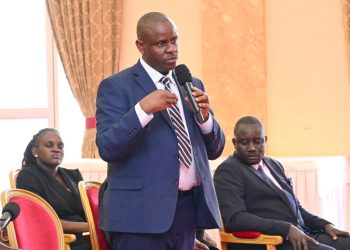Uganda and China’s Hunan province have signed a memorandum of understanding (MOU) expected to facilitate the construction of a power evacuation line from Achwa Dam in northern Uganda. The agreement is also expected to culminate in the construction of an industrial park and development of other clean energy technologies.
Achwa is a 10MW proposed minihydroelectric dam on the Achwa River expected to be complete in 2022. The Prime Minister, Ruhakana Rugunda, said the planned investments under the MOU are in line with Uganda’s aspirations to become a middle-income country by 2040.
He said under the Vision 2040, priority areas for investment include agriculture, tourism, industrialisation, mining, energy, human resource development as well as oil and gas. Rugunda said the planned UgandaHunan Industrial Park, estimated at $320.7m (about sh1.2 trillion), will provide jobs for Uganda’s youthful population, while at the same time helping in the balance of trade.
“The Hunan investors will build an industrial park here, but at the same time invest in building solar energy, biogas and biomass for clean energy consumption,” he said on the sidelines of the signing of the MOU at his office in Kampala, yesterday.
The signing was witnessed by Rugunda on behalf of Uganda and the deputy governor of the province of Hunan, He Boaxiang. Rugunda said a pilot biogas system would be rolled out by March next year. The project is expected to provide clean energy for cooking and lighting in both urban and rural settings.
“The investors will bring about 50 units for testing before the product is commercially rolled out. It is so good because it uses all kinds of material including chicken droppings, pig and cow droppings and other decomposing materials,” he said
Energy minister Irene Muloni said under the agreement, the investors will help the Government set up modern bio digesters to produce clean energy across the country.
“Biomass works well for huge consumers such as hospitals and schools. Once it is made available, it will help the country reduce the strain on hydropower,” she said.
Muloni said the investors would also introduce portable, efficient biogas systems in the country to help light rural places.
“Once the pilot works, this will be rolled out commercially at a small cost so that all people can afford it,” she said.
Last year, Uganda hosted the governor of the province of Hunan, who came with a delegation of 84 Chinese businessmen. During his visit, an MOU on economic and trade co-operation between Uganda and Hunan were signed. It was agreed that later, sector specific MOUs in agriculture, mining, energy, industrialisation and tourism would be signed.
Rugunda said while Uganda and Hunan wait for the signing of sectorspecific MOUs, projects that are ready for implementation should go on. He said in the last one year, the two sides have witnessed frequent exchanges at technical and enterprise levels, where countless resources have been spent by Hunan. Statistics from the trade ministry show that currently, China is Uganda’s leading source of foreign direct investment and bilateral capital flows.
Statistics also show that China is Uganda’s leading import destination, with imports from China hitting $1.296b last year, while exports fetched a paltry $31.943m.































































